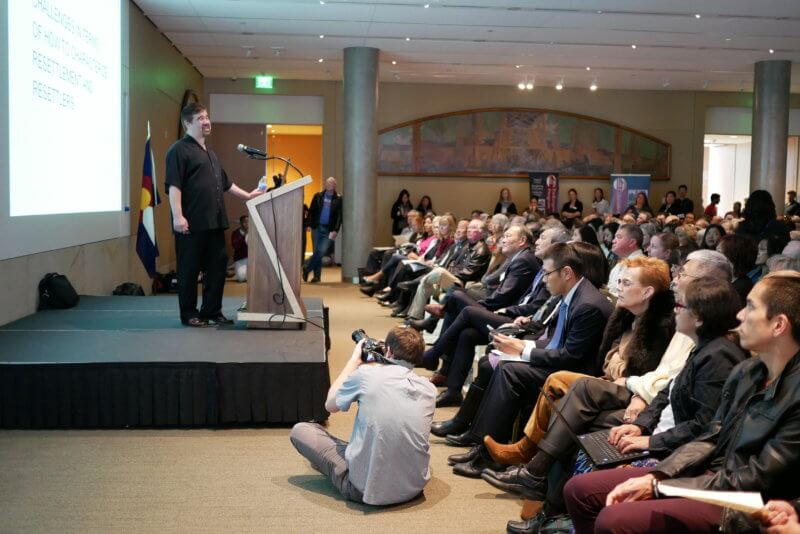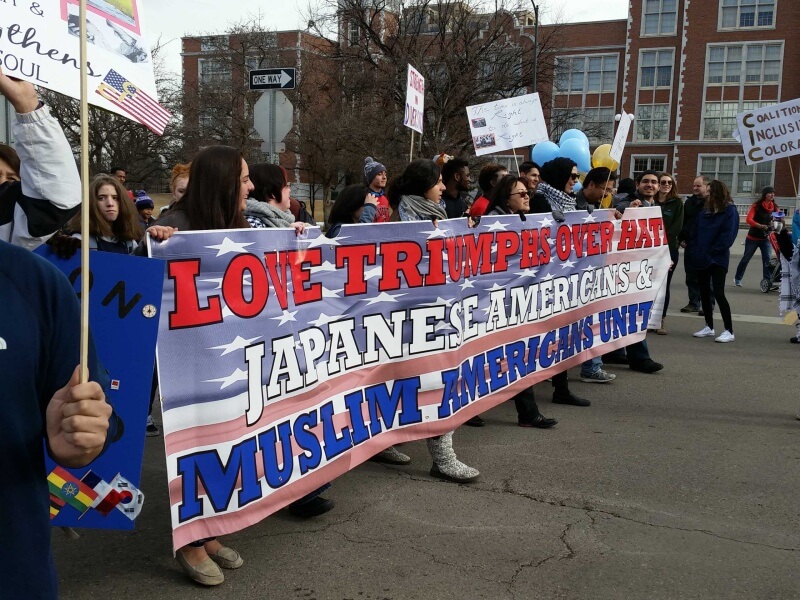
A standing-room-only crowd attended this year’s Japanese American Day of Remembrance in Denver. Lane Hirabayashi, Asian American studies expert and author of books about Japanese American history, gave a presentation of the post-war resettlement of JAs in Denver.
Many Japanese Americans I know don’t pay much attention to Japan, which I think is a pity. I believe JAs should keep up with news from Japan, and travel to Japan. A lot.
However, most JAs I know closely follow the news of Donald Trump’s presidency, and what he’s doing in the US.
JAs – and others — have been concerned enough about our president that this year’s Day of Remembrance events across the US, which commemorated the 75th anniversary of the signing of Executive Order 9066 on Feb. 19, 1942 by President Franklin Roosevelt, were packed with much larger audiences than in past years. That’s because EO 9066 led to the incarceration of 120,000 people of Japanese descent in American concentration camps.
Now, with President Donald Trump signing a blizzard of executive orders including two controversial, currently on-hold one temporarily banning travel to the US from seven Muslim-majority countries, and threatening to punish “sanctuary cities,” also blocked by a federal judge, Executive Order 9066 has a much heavier symbolic weight. People are worried that what happened to Japanese Americans could happen again to Muslim Americans. A ban and registry, which were both cited during Trump’s campaign, are first steps to what happened to JAs 75 years ago.
So Trump’s brief reign as president has already resulted in a lot more awareness of the Japanese American experience. Thanks, prez!
But JAs should also keep an eye on what he does and how he thinks about Asia, and in particular, Japan.
Continue reading











